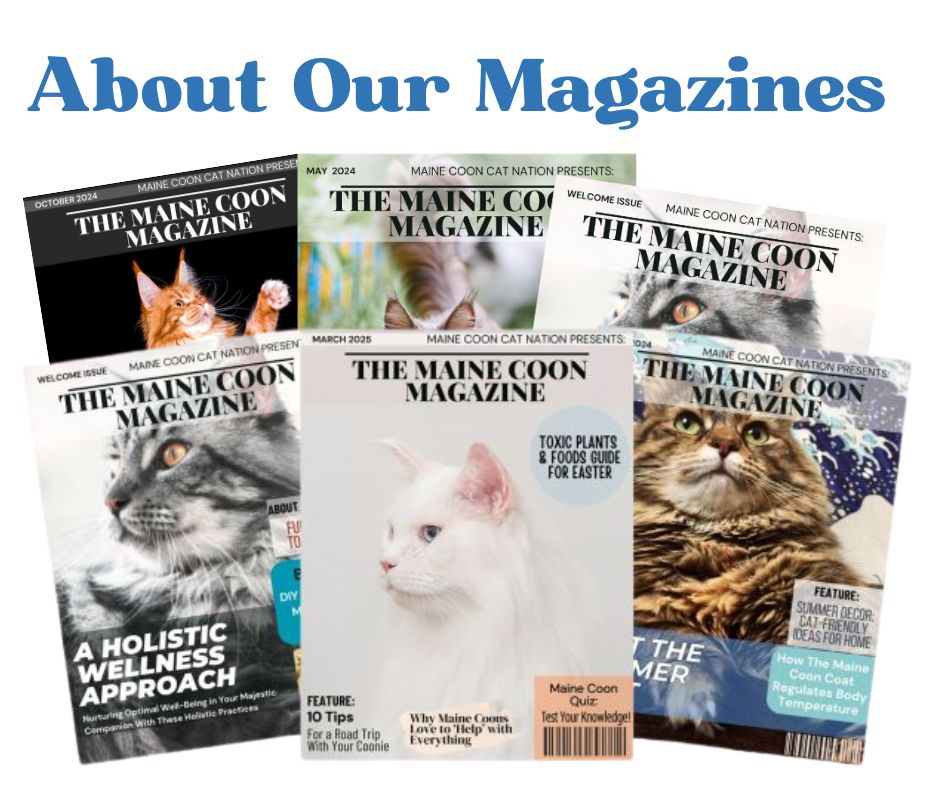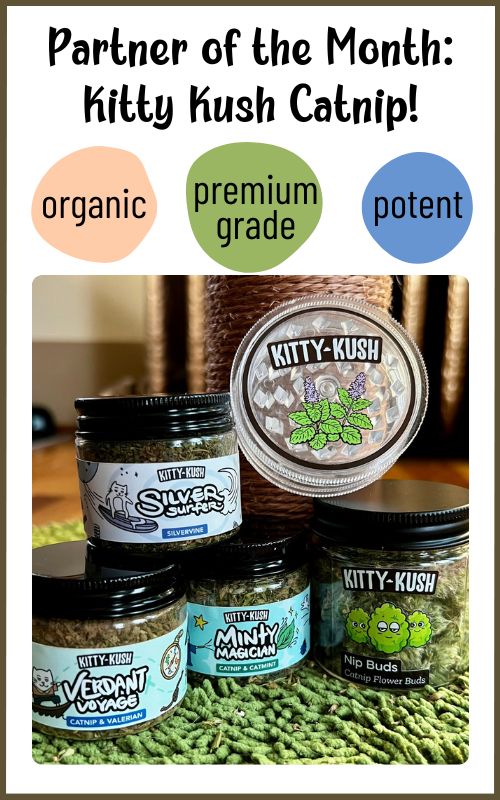- Home
- How to Find a Coonie
- 10 Questions to Ask a Breeder
10 Questions to Ask a Breeder
Here are some important conversation starters and questions to ask a breeder that can help you feel confident about where your future furbaby is coming from.
This is a big decision - and not just because they're cute (which, of course, they are).
Whether you're leaning toward a Coonie or another breed entirely, finding the right breeder makes all the difference. And that all starts with asking the right things.
This isn't about grilling anyone, but there are some important questions to ask a breeder that can help you feel confident about where your future feline is coming from.
A good breeder won't be put off - they'll probably be glad you care enough to ask.
Let’s walk through the kind of conversation that'll help you know if this person is the real deal, and a good fit for you... or if it's time to keep looking.
1. Can I meet the parents?
This one tells you a lot. Seeing mom (and sometimes dad) gives you a window into your future kitty’s temperament and size.
If the parents are calm, friendly, and well cared for, there’s a good chance your kitten will grow up with those same vibes.
If a visit isn’t possible, ask for recent photos or videos. But if someone refuses to show you the parents at all? That’s a red flag.
2. How are the kittens raised?
This is one of the most important questions to ask a breeder because early experiences shape a kitten’s whole life.
Are the babies raised underfoot, getting used to household noise, people, and everyday life? Or are they tucked away in a separate room or outdoor building with little interaction?
Socialization matters - a lot. You want a confident little explorer, not a shy kitty who’s terrified of the vacuum.
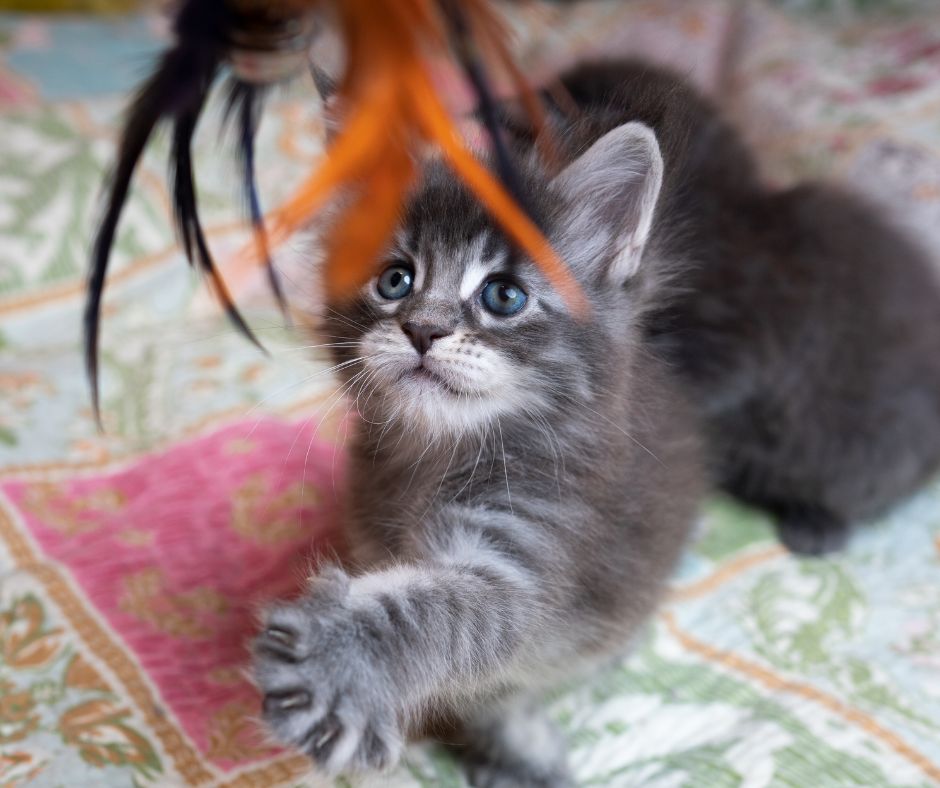
3. What health testing do you do?
Not all health problems are visible. Responsible breeders screen their adults for inherited issues like heart disease or joint problems, depending on the breed. They should be comfortable sharing what tests were done and what the results were.
No one can guarantee a perfect cat, but this shows they're doing their best to give you a healthy start.
4. When can the kitten come home?
The right answer here is usually around 12–14 weeks. It might sound like a long wait, but those extra few weeks with mom and siblings teach your little fluff how to be a proper cat.
Biting too hard? How to play nicely? That's what they learn during this time.
If someone’s offering to send him home at 6 or 8 weeks… that’s a hard no. It’s just too early.
Sidenote: As a foster mom to a darling little black shorthaired kitty, I can attest to this. She stayed with mama kitty for just 8 weeks, and had no siblings.
Although friendly and possessing a strong desire to be with family, (she is around us all the time) - she still does not understand how to play nicely.
She uses her claws on us constantly. We've come to realize that she actually, really, doesn't know how to express affection and interact nicely!
Purring, rubbing, head-butts, then - swat! But she doesn't mean anything by it. It's just a thing she does.
It's not as rewarding as having a well-socialized kitten who can be held, petted and interacted with without being swatted at.

5. Do you offer a contract or health guarantee?
Paperwork might not be the fun part - but it matters. A good contract protects both you and the breeder, and usually spells out things like spay/neuter expectations, return policies, and health guarantees.
If they seem annoyed you’re asking about this stuff or say, "We don’t do contracts," that’s a sign to pause. A bit of formality here is actually a really good thing.
6. What do you feed your kittens?
This one’s easy to overlook, but it gives you insight into how the kittens are cared for - and helps you avoid tummy troubles during the transition home. A sudden switch in food can upset even the sturdiest little belly.
Plus, if the person’s feeding high-quality food, it’s a sign they’re putting thought into raising healthy, thriving babies.
7. Are the kittens litter trained?
Most reputable folks will say yes - and they'll usually add that the kittens are used to a certain type of litter or box. This makes your first few days at home a lot smoother.
It’s also a good way to find out how much time they have spent in an actual home setting, as opposed to just a cage or kennel.
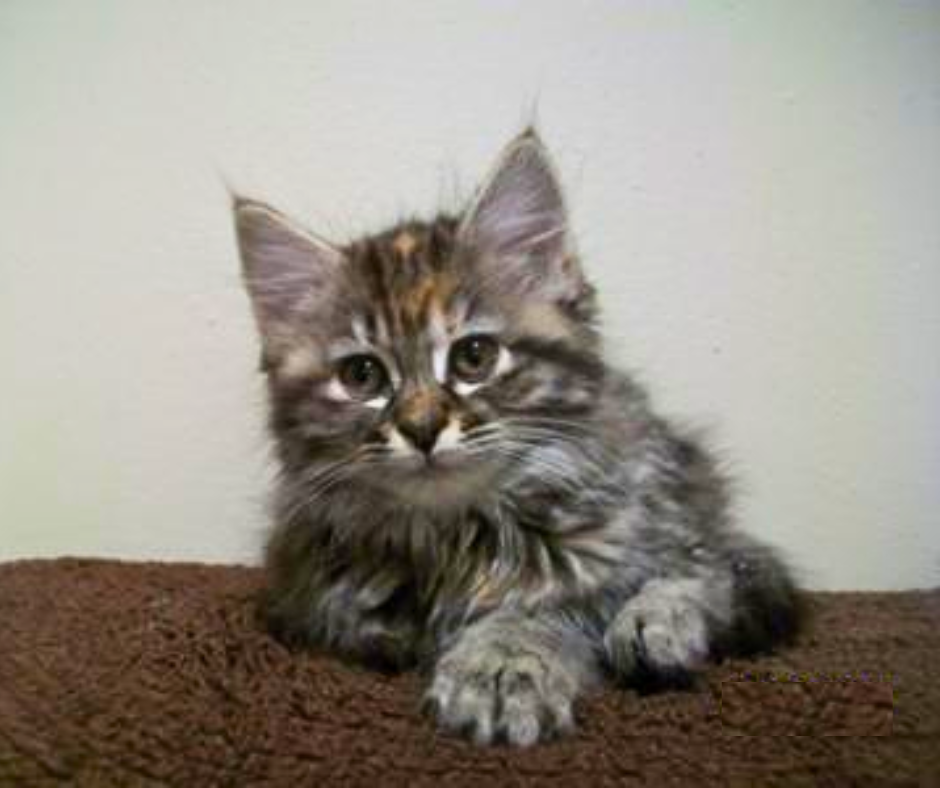
8. What kind of personality do you see in this kitten so far?
By the time a kitten is ready to reserve, their personality is starting to shine through. Some are bold and bouncy, while others are a little more cuddly and calm.
If the person knows their cats well, they’ll be able to give you a thoughtful answer - something more than "they’re all sweet." You want someone who knows the difference between the rowdy one, the shy one and the lap cat!
9. What support do you offer after adoption?
A great breeder doesn't disappear once you've handed over a deposit. Many will check in, answer your texts at odd hours (especially those first few days!), and genuinely want updates.
If someone says, "Once the cat leaves, it’s your problem," that tells you everything you need to know.
10. Can I return the kitten if something doesn’t work out?
No one wants to imagine this, but life happens. A good breeder will take their kittens back at any age, for any reason. It’s part of being responsible for the lives they bring into the world.
Of course you can't imagine this happening, but what if someone in your household gets sick? What if you have to move? What if you learn there is a previously unknown severe allergy in the home? What if there's another pet who terrorizes the kitten?
This is one of those quiet-but-important questions to ask a breeder that separates the ones who care deeply from the ones just trying to make a sale.
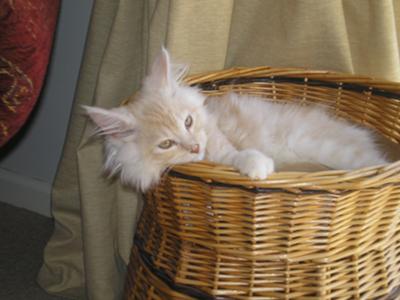
Bringing home a new kitten is exciting, but it’s also a big step - and you deserve to feel good about where your little one is coming from.
Having a few solid questions to ask a breeder isn’t about being picky; it's about making sure this is the right fit for both you and your future cat.
Most reputable folks will appreciate that you’re doing your homework. These kinds of conversations can spark real trust, and they'll help you walk away knowing you’ve made the best choice.
So go ahead - jot these down, bring them with you, and don’t be shy about asking.
Top of Questions to Ask a Breeder
« Back to Maine Coons for Sale / Adoption
Recent Articles
-
Will a Maine Coon Protect Its Owner From Danger or an Intruder?
Apr 09, 25 10:41 PM
Plenty of people are curious: Will a Maine Coon protect its owner if something happens? Let’s talk about what this means, and what kind of protector a Coonie is. -
9 Types of Maine Coon Cats and How to Tell Them Apart
Apr 09, 25 03:58 PM
When people say "types of Maine Coon cats," they're usually talking about color. But as Coonie lovers know, there’s a lot more to it than that! From wild-looking European lines to polydactyl paws and… -
10 Questions to Ask a Breeder Before You Commit
Apr 08, 25 03:51 PM
Here are some important conversation starters and questions to ask a breeder that can help you feel confident about where your future furbaby is coming from. This is a big decision - whether you're le…
